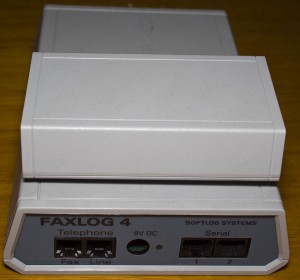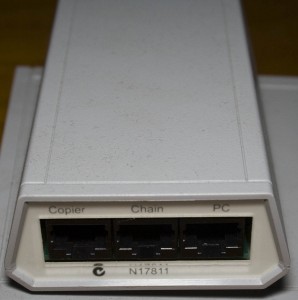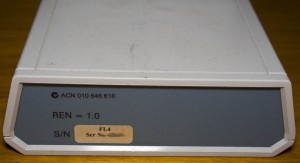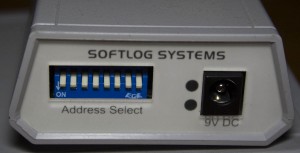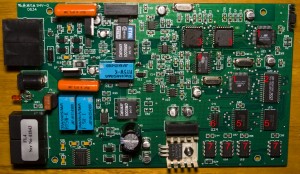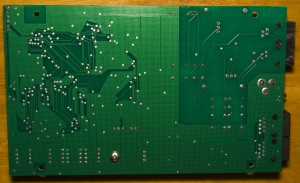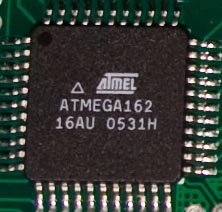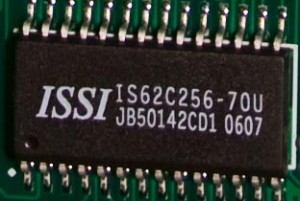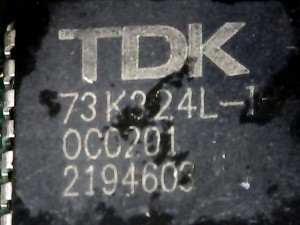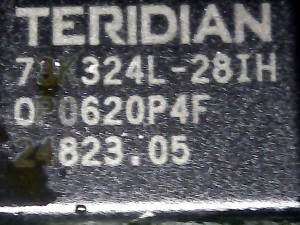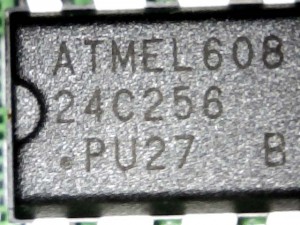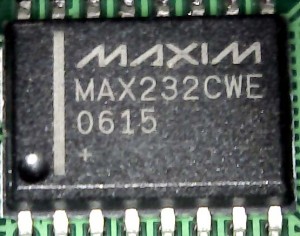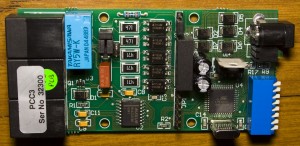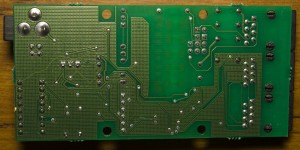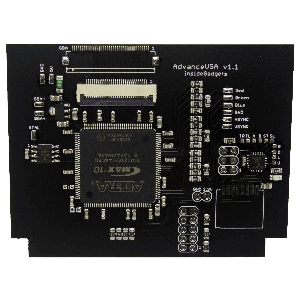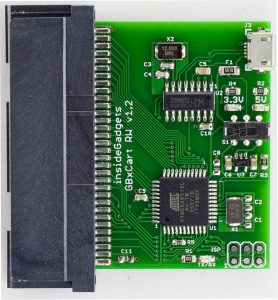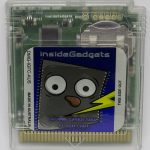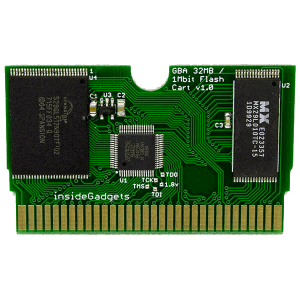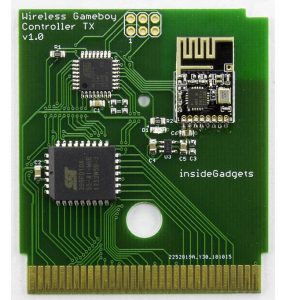Today we’ll be taking a look at the Softlog Systems Faxlog 4 device which as it says converts incoming faxes to serial and then there’s another box which plugs into the PC. The date code is 2006/34th week.
There was a RJ45 cable connecting this sub-board to the main board, whether or not this was all the parts in the Faxlog system is unknown. There is also a selectable address line via DIP switches.
Main Board
The PCB has a lot more ICs and components than I had expected. We’ve got some phone line filtering and protection with some larger than normal capacitors (compared to internet routers), along with 2 TIP31CG NPN transistors, some RY5W-K relays, a NMV0515SC DC-DC converter 5V input to 15V output and some P2769 / 100SMD transformers. Coming from the transformers / opto-isolators, we’ve got 3 UA741 opamps and 2 DG419 analog switches. In terms of power supply side, it’s 9V input with a large 1000uF capacitor, LM2940CT 5V LDO with heatsink and a NMA0505DC 5V input to -5 and +5V output.
1. Atmel Microcontroller
At the heart of the board we’ve got 2x ATmega162 MCUs with 6MHz crystal.
ATmega162
2. ISSI 256K Parallel SRAM
IS62C256-70U
3. TDK/Teridian Modem
We have a single chip modem capable of operating at V.23. There are 2x parts that look the same, have the same part number but come from different manufacturers, uses an 11.0592 MHz crystal.
73K324L
4. Zarlink DTMF Transceiver
Converts tones into 4 bits worth of data and vice versa, uses a 3.579545 MHz crystal.
MT8888C
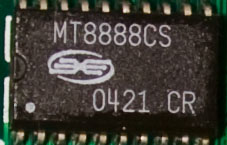
5. TI Octal D-type Latch
There are two of these latches, both inputs go to the ATmega, one’s outputs goes to the Parallel SRAM.
HC573A
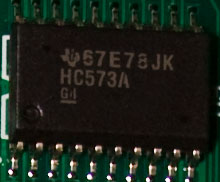
6. TI Quad NAND Gate
HC00
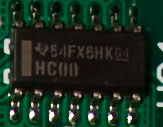
7. Atmel 256K SRAM
We have 4x 256K SRAM for a total of 1MB.
24C256
8. Maxim RS232 Serial
MAX232CWE
Sub Board
This board has similar circuitry to the main board, it’s got a LM7805 regulator with another -5V/+5V DC-DC converter, an ATmega162, a few opto-isolators, a relay and a MAX232.
And that’s all.
